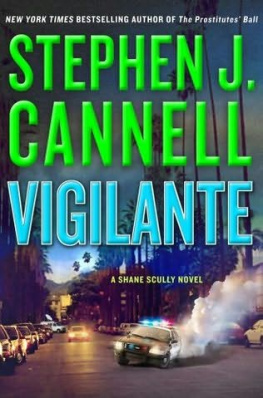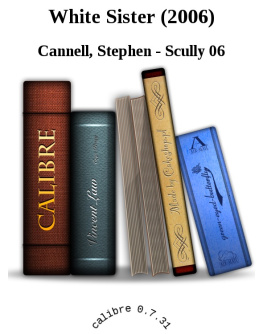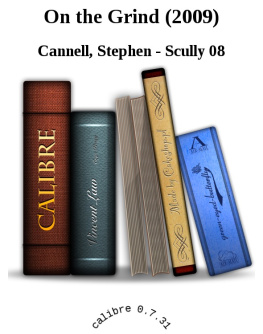Stephen J. Cannell - Riding the Snake
Here you can read online Stephen J. Cannell - Riding the Snake full text of the book (entire story) in english for free. Download pdf and epub, get meaning, cover and reviews about this ebook. year: 1999, publisher: Avon, genre: Detective and thriller. Description of the work, (preface) as well as reviews are available. Best literature library LitArk.com created for fans of good reading and offers a wide selection of genres:
Romance novel
Science fiction
Adventure
Detective
Science
History
Home and family
Prose
Art
Politics
Computer
Non-fiction
Religion
Business
Children
Humor
Choose a favorite category and find really read worthwhile books. Enjoy immersion in the world of imagination, feel the emotions of the characters or learn something new for yourself, make an fascinating discovery.
- Book:Riding the Snake
- Author:
- Publisher:Avon
- Genre:
- Year:1999
- Rating:4 / 5
- Favourites:Add to favourites
- Your mark:
- 80
- 1
- 2
- 3
- 4
- 5
Riding the Snake: summary, description and annotation
We offer to read an annotation, description, summary or preface (depends on what the author of the book "Riding the Snake" wrote himself). If you haven't found the necessary information about the book — write in the comments, we will try to find it.
Riding the Snake — read online for free the complete book (whole text) full work
Below is the text of the book, divided by pages. System saving the place of the last page read, allows you to conveniently read the book "Riding the Snake" online for free, without having to search again every time where you left off. Put a bookmark, and you can go to the page where you finished reading at any time.
Font size:
Interval:
Bookmark:
Riding The Snake
Stephen J. Cannell
*
PROLOGUE:
He sat in the back of his beautiful new three-engine Falcon jet as a setting sun turned the silver wings bright orange. He watched in fascinated silence as his "dirty" blood was transferred, snaking out of his arm in the transparent plastic tubes, then shooting into the large dialyzer where it was washed of urine and body toxins. Then his blood would return from this grotesque laundry and be inserted back into him. The process was debilitating and caused "Willy" Wo Lap Ling tremendous fatigue. He looked up at his full-time physician, a young Chinese doctor from Hong Kong named Li Dayu. He was narrow shouldered and skinny with thick prescription wireless glasses. Dr. Li checked the dialysis machine, which was built into the private jet's lavatory. He pushed his glasses up on his nose and noted the blood flow rate that measured the fluid processed by the hissing, gurgling monstrosity. Next, the doctor checked the permanent plastic tips that had been surgically implanted in Willy's arm and abdomen, and to which the dialysis machine was now attached. Then he looked at the withered sixty-nine-year-old Triad leader critically.
"I think it is time. We must go to Beijing," he said in Mandarin Chinese. "I sent your blood panels to them. They have notified me they have a donor."
"I have enemies there," Willy sighed. "I have ignored the wishes of Chairman Deng. I cannot lose face. I cannot now crawl there like a wounded animal, drag myself up onto his porch, and ask forgiveness."
" Zou Hou Men," the doctor said, looking into Wo Lap's jaundiced eyes, using the Chinese expression meaning "Go in the back door." "Use your Guan-Xi with the Chinese Academy of Social Sciences." Guan-Xi was the time-honored Chinese tradition of influence that still controlled most social and business relations in China. The head of that new Academy was Chen Boda, who also headed the Chinese Communist Party's Military Commission and was, arguably, the most powerful man in China. Even more powerful than the ailing Chairman Deng Xiaoping.
The Chinese Academy of Social Sciences had been formed only one month before and had been heralded by President Clinton as an important step by Chinese Communists to find bridges of understanding with the West. Willy Wo Lap Ling had been invited by Chen Boda to be part of the Academy. The invitation had surprised him, because he lived in Hong Kong under British rule and had engaged in a life of crime there, but Willy had been told it was extended because he was an expert on U . S . commerce. After all, didn't he steal billions in cash annually from an unaware and stupid America?
Chen Boda had identified the United States as China's sole global enemy in his address before the Communist Party's Central Committee during a closed meeting at Beijing's Jiangxi Hotel in January of 1994, the Year of the Dog. In the view of the Chinese Academy of Social Sciences, Willy Wo Lap Ling was actively engaged in poisoning the American fabric from within with his drugs, guns, and illegal immigration. He was known to have great influence with corrupt American officials. He had invested heavily in American politics and had influence with many U . S . Senators and Congressmen. Willy Wo Lap had even been to the White House and had his picture taken with President Bill Clinton. The picture was hanging in his Hong Kong office and displayed for all his incredible Guan-Xi with the American leader. It was this criminal activity and political influence that caused Chen Boda to invite Willy to be an adviser to the powerful new Academy, which was hardly a bridge to better understanding with the West. It was a Chinese think tank solely dedicated to the total and absolute destruction of American interests around the world.
Wo Lap Ling had been born in the New Territories inside the Walled City of Kowloon in 1925. At the time there were nineteen members of his family living in a one-room concrete flat. The Walled City was the perfect place for Willy. History had prepared that ghetto for him years before he was born.
The New Territories had been ceded to the British from China for ninety-nine years in 1898. The Walled City of Kowloon, as a result of a poorly worded agreement, became disputed property, with both the British and the Chinese claiming sovereignty over it. It was a pocket of lawlessness, governed by neither country, where crime and violence flourished. Soon criminal Triads became the ruling power in the Walled City, where there was no wall. The Japanese had it torn down by POWs when they occupied that area during World War II. The ghetto kept its name because the place had been designed without streets. Narrow alleys randomly transected the crowded mass of buildings. As the population and need for new housing grew, the ghetto swelled. "New" top floors were built precariously over old. With no Planning Commission or City Council to oversee design, stress, and load requirements, the new floors were balanced unevenly, like randomly stacked boxes, giving the ghetto the look of a wall of concrete. The narrow alleys became tunnels which were closed in by top stories. Even at noon, no sunlight penetrated these walkways. Water and electricity were stolen from nearby conduits. Makeshift water mains leaked; jerry-rigged wiring sparked and zapped in the fetid darkness. Sewage and the entrails of animals were thrown down into the dark pathways from one-room factories that churned out pork balls and fish cakes. In most places, the narrow walkways were filled almost two stories high with human excrement and rotting garbage. At some places, the alleys were only a few inches wide.
The small industries that operated in the Walled City hummed twenty-four hours a day, turning out everything from hair oil and bicycle parts to sex toys for Western consumers. Theft, murder, and intrigue always hovered in the dark.
It was in this criminal environment that Wo Lap Ling grew up. His family lived on the fifth floor of a ramshackle old building. Since there were no streets, no apartment had an address, and children from an early age learned to navigate in the teeming black tunnels, finding their homes by instinct almost like blind ants returning to the nest.
Wo Lap Ling had to share a bed with five other members of his extended family. They used a "hot-cot" method. He had the bed from nine in the morning until four in the afternoon, then he would turn it over to his cousin, Sun Yee. By five P . M ., he was out in the swarming alleys of a city that housed factories, opium shops, and humanity with equal disregard.
No Occidentals dared go into the Walled City of Kowloon, except, that is, for Jackie Pullinger. She had lived there since she arrived from England in 1929. She was an evangelist missionary who taught the children the vague customs of the West that were now the rule in Hong Kong. She also ran a drug rehabilitation program. Her success rate was staggering. Since she provided a service for these Chinese children, she had at first been tolerated, and eventually became a fixture that everyone accepted. She had taught Wo Lap Ling English and had given him his Western name, Willy.
Jackie Pullinger was the only Occidental he had ever loved.
Willy had been so adept at feats of criminal balance that he had risen from a street urchin who ran errands for the area Triad leader to become, at the age of twenty-three, the powerful Incense Master or Vanguard of the Chin Lo Triad. As Vanguard, it was his duty to wreak punishment on delinquent Triad members, a job he performed with great relish. He became an expert on all forms of punishment, including the painful Death by a Myriad of Swords. He resurrected several ancient tortures involving rats and insects. He rose quickly to become the White Fan (Consigliere), and now Willy Wo Lap was the "most powerful Shan Chu" and ran the entire Chin Lo Triad in Hong Kong. The Triad's current annual take from its worldwide illegal activities was eighty billion dollars and growing.
Font size:
Interval:
Bookmark:
Similar books «Riding the Snake»
Look at similar books to Riding the Snake. We have selected literature similar in name and meaning in the hope of providing readers with more options to find new, interesting, not yet read works.
Discussion, reviews of the book Riding the Snake and just readers' own opinions. Leave your comments, write what you think about the work, its meaning or the main characters. Specify what exactly you liked and what you didn't like, and why you think so.

